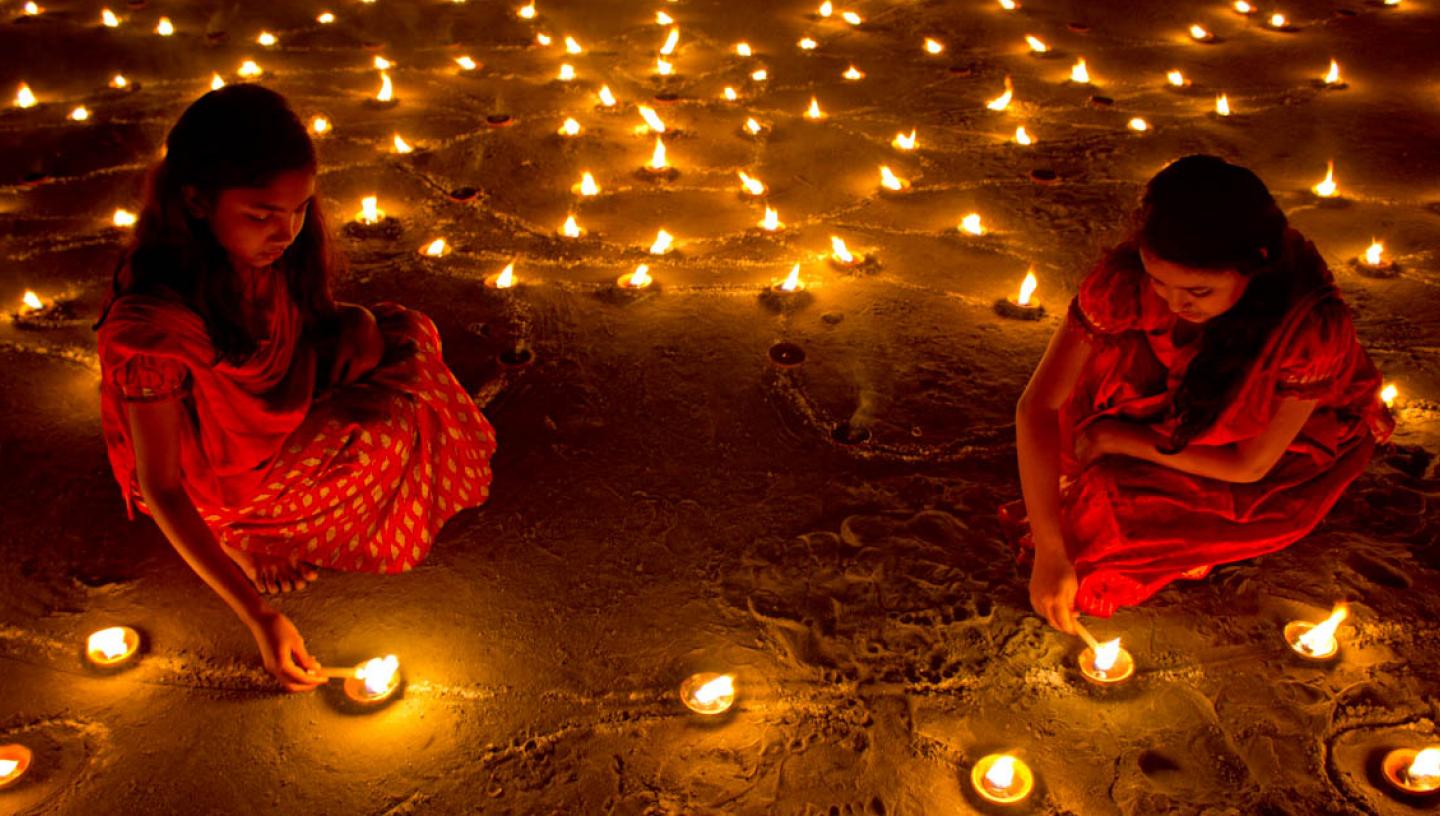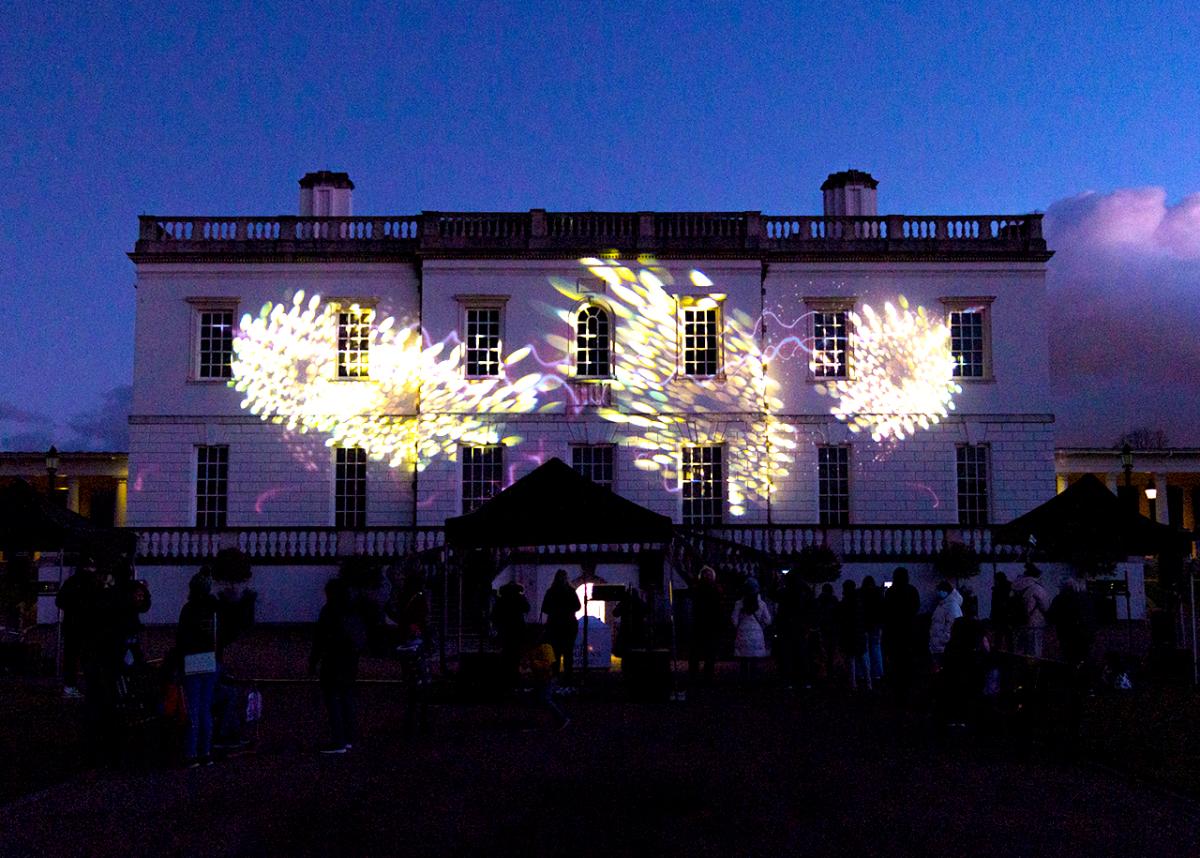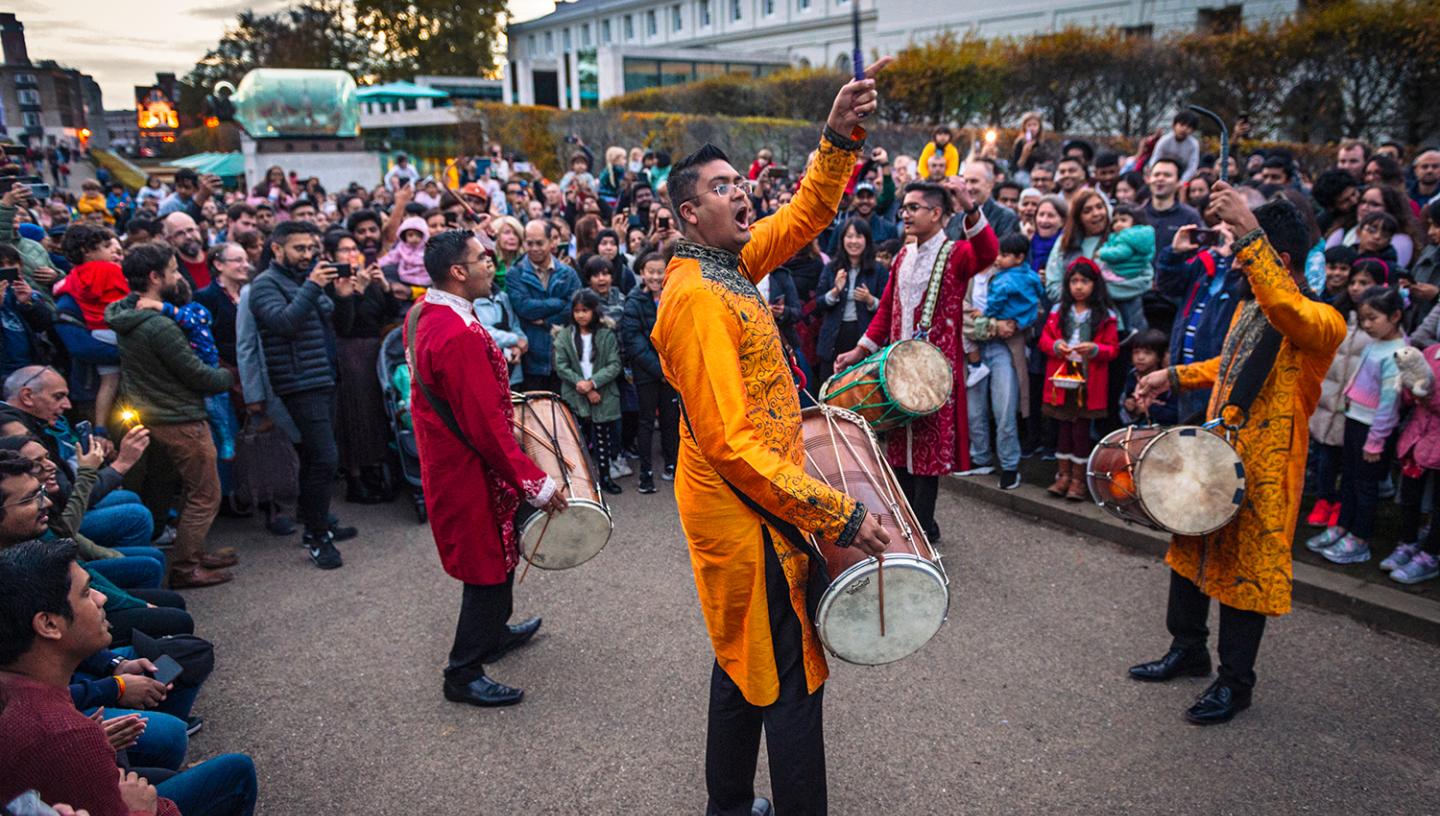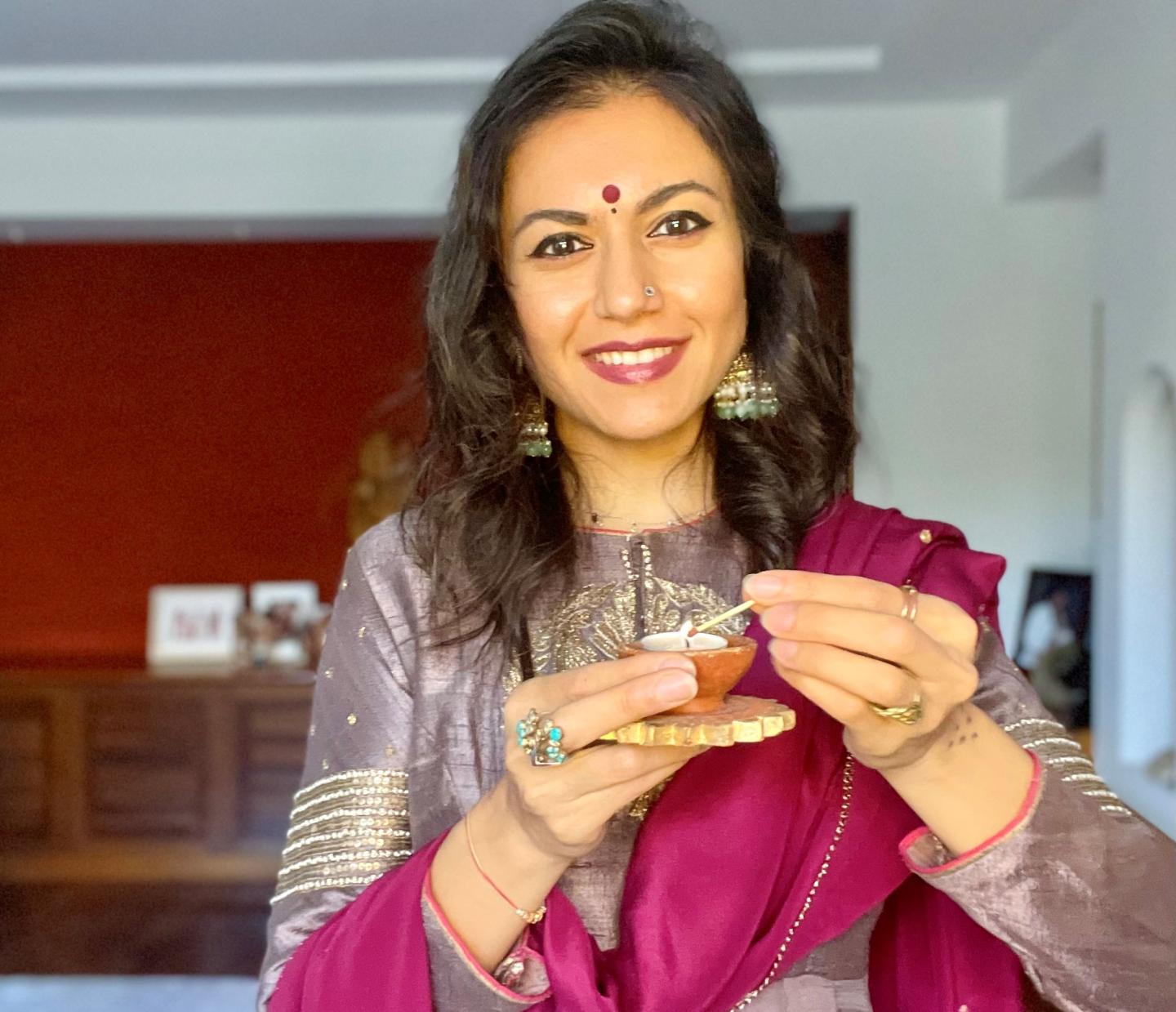
Diwali, also known as Deepawali, is a five-day-long festival celebrated by Hindus, Jains, Sikhs and some Buddhists. It takes place every autumn between October and November, with the date changing every year.
The main celebrations occur on the third day of Diwali, the darkest day of the month, coinciding with the Hindu lunisolar calendar. Goddess of fortune, prosperity and wealth, Lakshmi is the primary deity worshipped during Diwali.
In 2023 Diwali falls on 12 November. The National Maritime Museum in Greenwich will be hosting a fantastic weekend Diwali celebration featuring live music and performances, workshops, and a beautiful evening lantern parade and light display.
See highlights of last year's event below:
What is Diwali?
Diwali represents new beginnings and the victory of light over darkness, good over evil. It is the triumph of righteousness; knowledge in place of ignorance.
This five-day festival is observed around the world and its rituals vary by region, although more often than not it concurs with the new moon (amāsvasya).
It is likely that the Diwali is a fusion of harvest festivals in India, dating back more than 2,500 years. It is mentioned in multiple ancient texts such as the Padma Purana and the Skanda Purana.

How is Diwali celebrated?
In the lead-up to Diwali, celebrants may prepare by cleaning and decorating temples, as well as their homes and workplaces. Places are brightly illuminated with candles and oil lamps, and devotional offers (puja) are made. People also often wash themselves with water and fragrant oils, or wear adornments and new, fine clothes.
Families may organise feasts in which sweets (mithai) and gifts are shared. Many cities, towns and villages set off fireworks in the evening and hold fairs (melas).
However, the way Diwali is celebrated today may be very different depending on people's culture, heritage or religious faith.
"Shared rituals and ceremonies, such as those that take place at Diwali, can offer us a sense of belonging," explains Mehala Ford, the founder of COMMONGROUND& and the host of the National Maritime Museum's 2023 Diwali celebrations.
"New rituals and ceremonies are emerging and old ones are being revised to include people who do not identify themselves as traditionally religious, bringing people together based on a sense of community, rather than shared religious beliefs."
Diwali celebrations in the UK
The National Maritime Museum hosts a Diwali festival every year, but whether people celebrate in public or at home the festivities can be just as vibrant – even if the British weather doesn't always cooperate.
"Rangoli – making a design on a board with vibrant coloured powders – goes hand in hand with Diwali," says chef and author Mira Manek. "Traditionally rangolis are done at the entrance of the home (gharna aangane), but this is practically tricky in London, with smaller houses and colder weather meaning they can quickly be spoilt!"
Artist Smriti Mehra says that Diwali can make her miss being in India, and she is still "building" a new community spirit in the UK.
"To me Diwali is about celebrating the victory of light over darkness, of knowledge over ignorance – the essence and spirit of the festival rather than a religious association," she says.
"Having lived in India for most of my life, celebrating Diwali has had to change. It's cold, windy and wet at this time of the year and the practice of lighting diyas or candles around your house is a hopeless activity. Lighting up indoors is not the same, and I miss being in India at this time of the year. Not just for the lights: Diwali is all about family and community, and I'm still building that here."
Different community organisations coming together can help in that building process, however.

Celebrate Diwali at the National Maritime Museum
(Main image courtesy of Wikimedia Commons)
